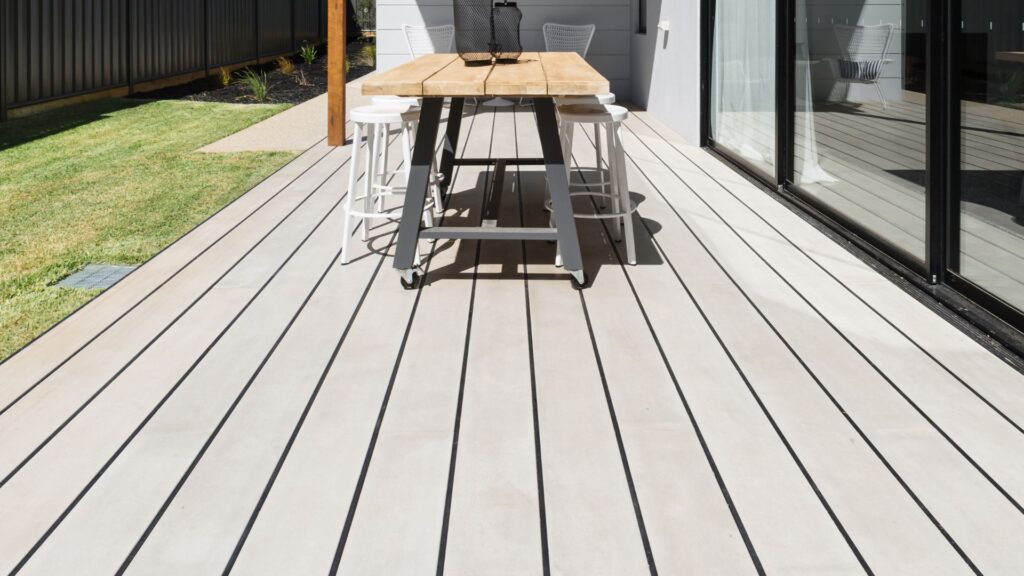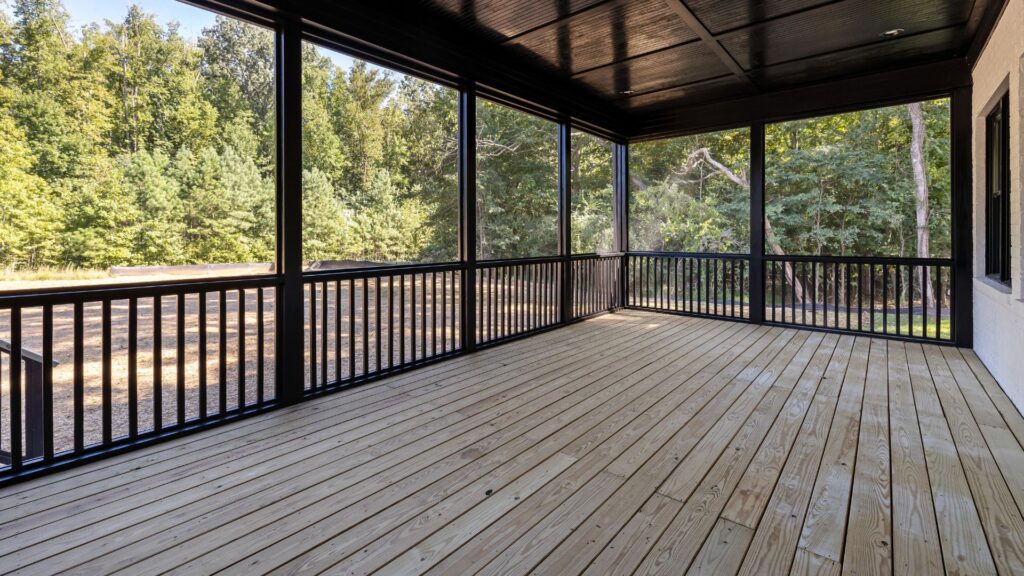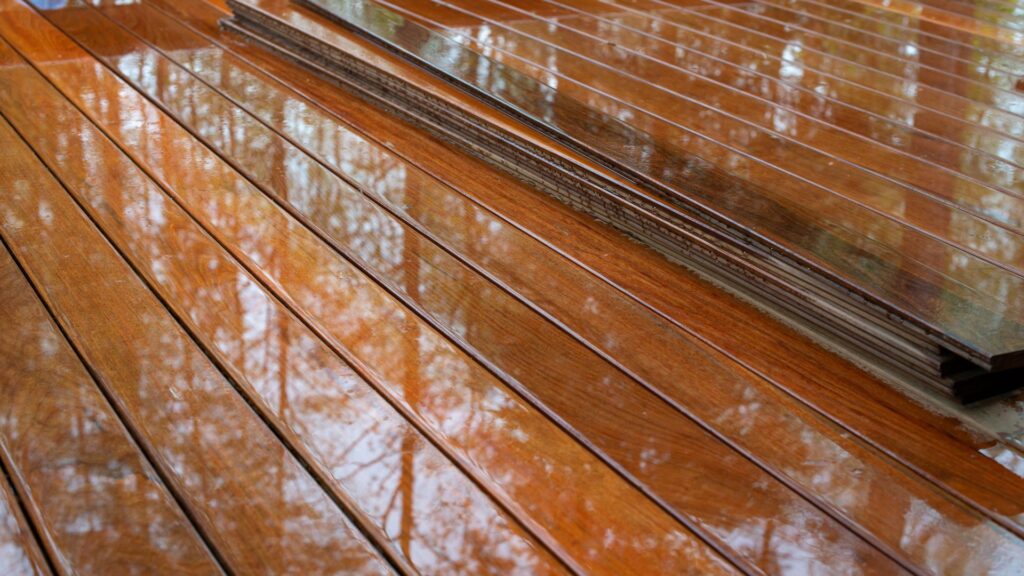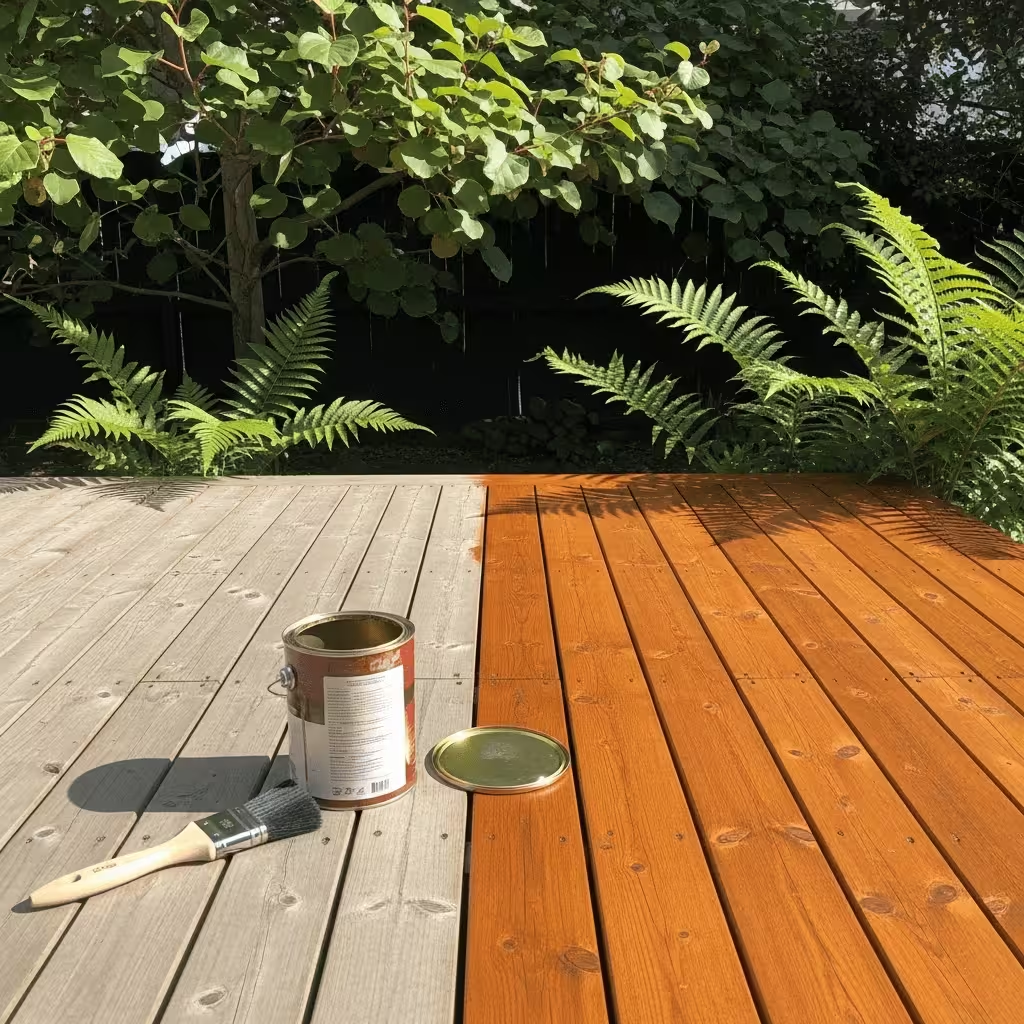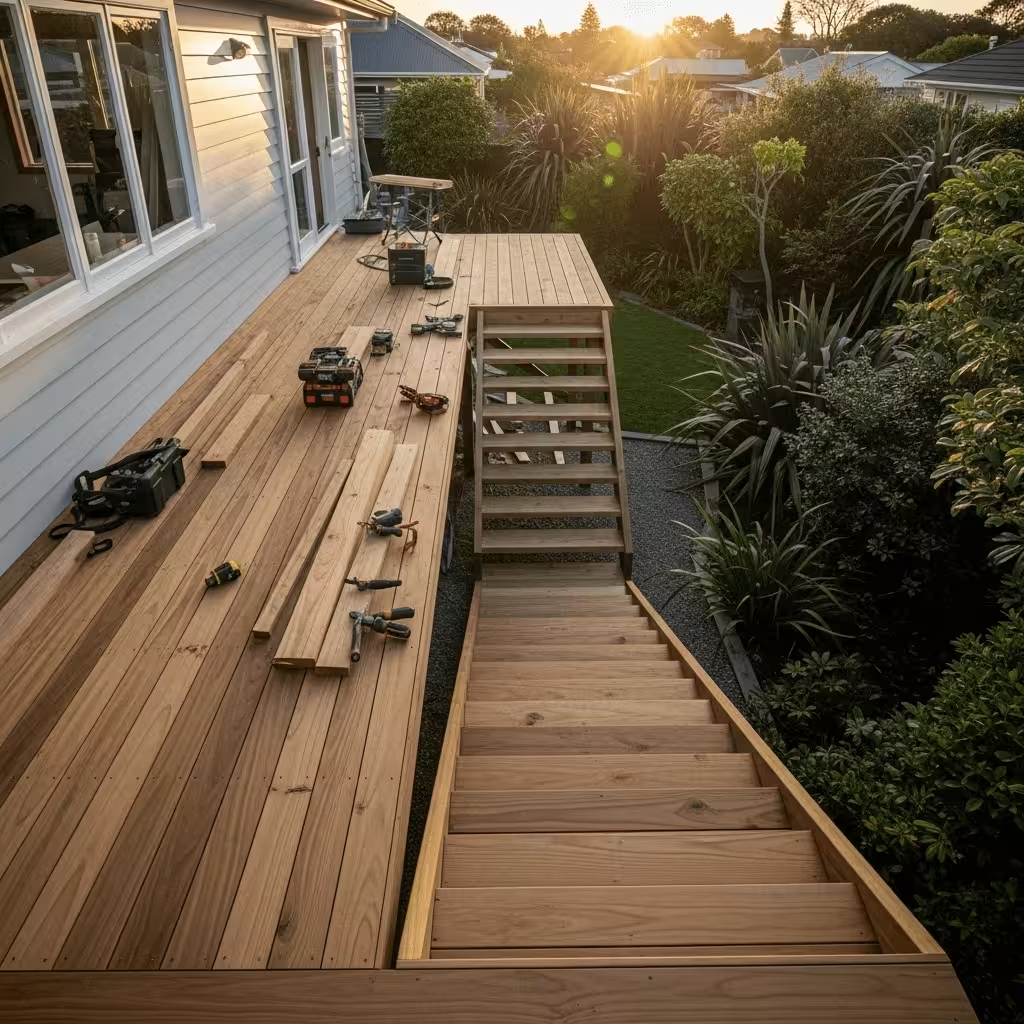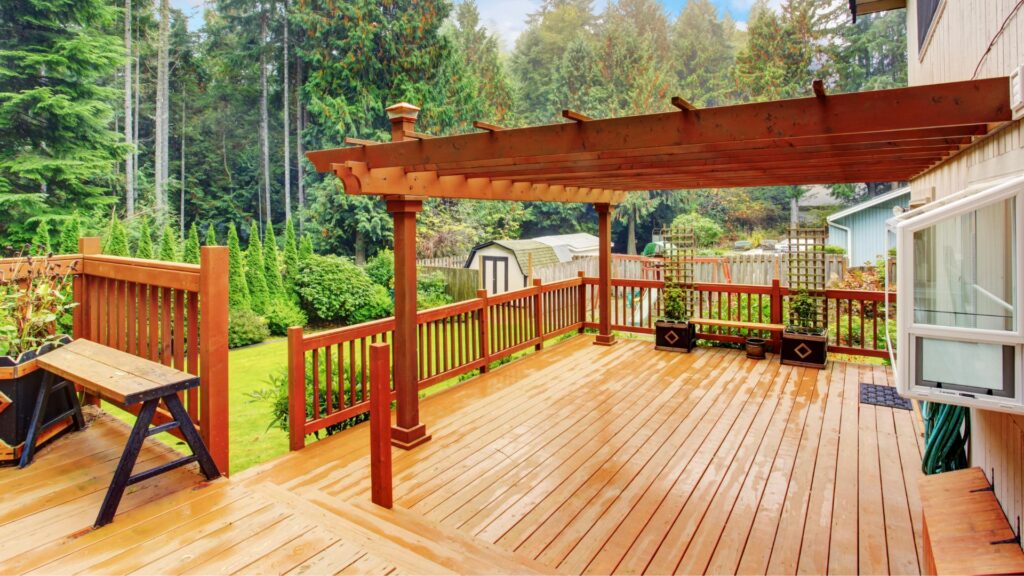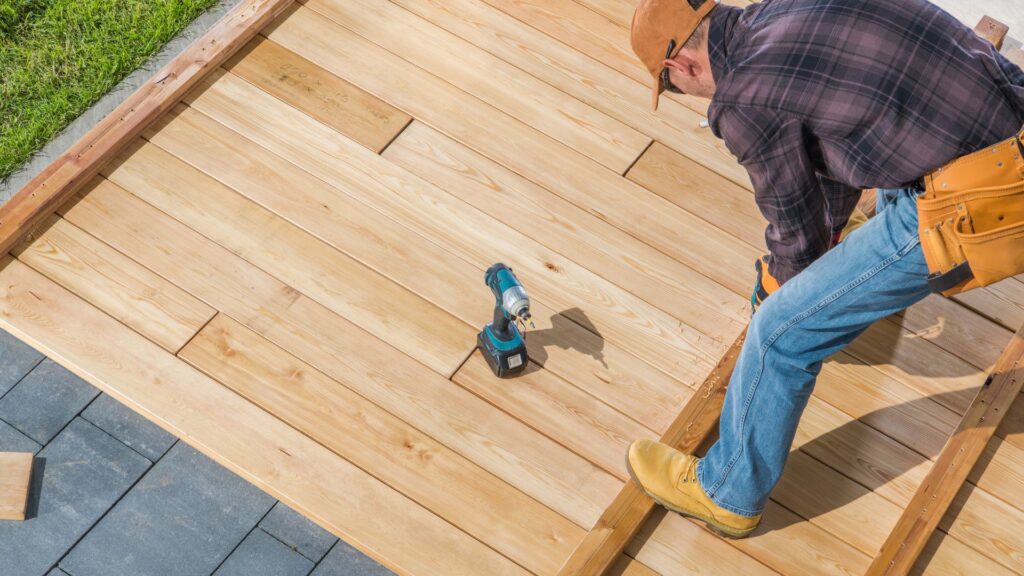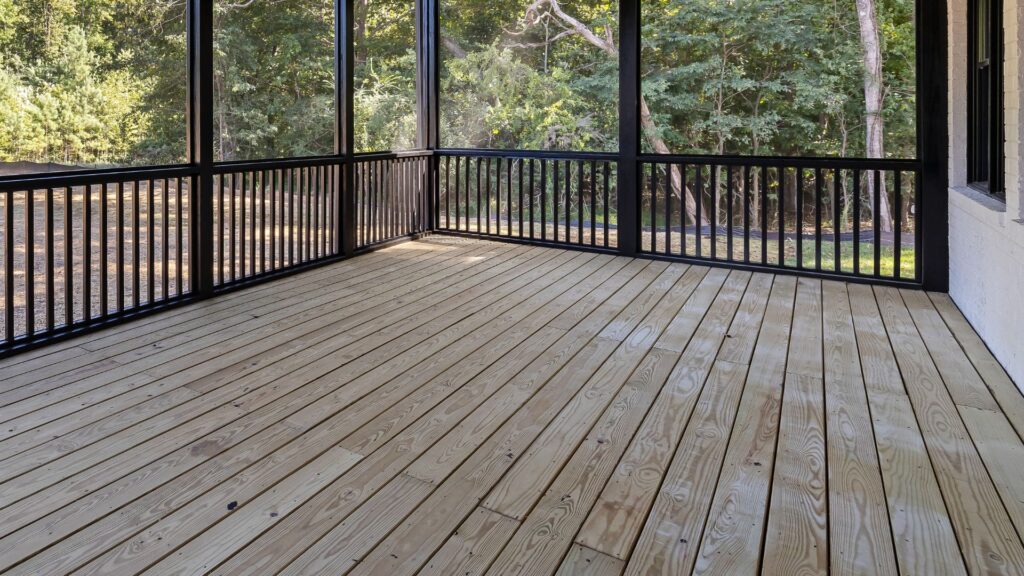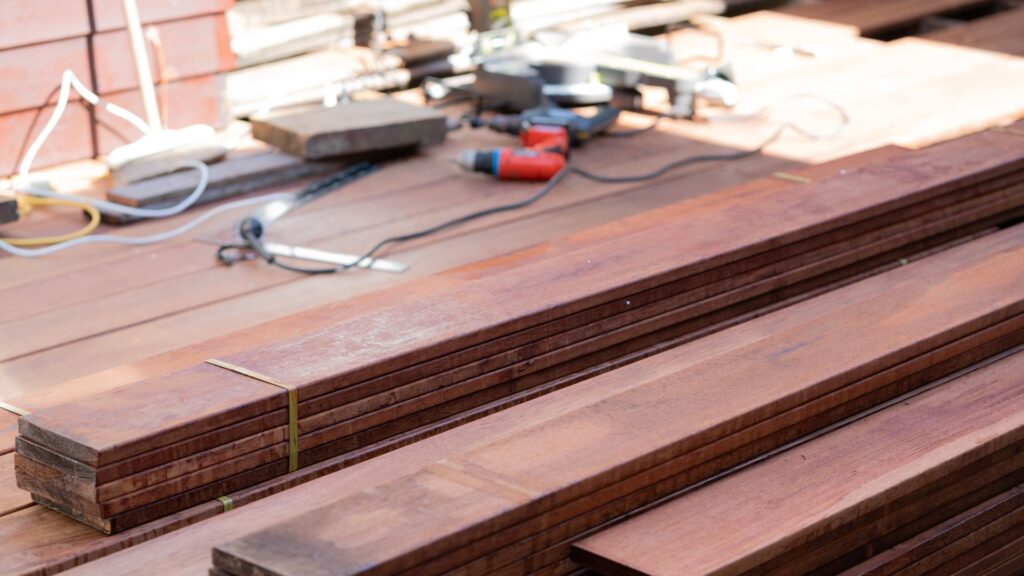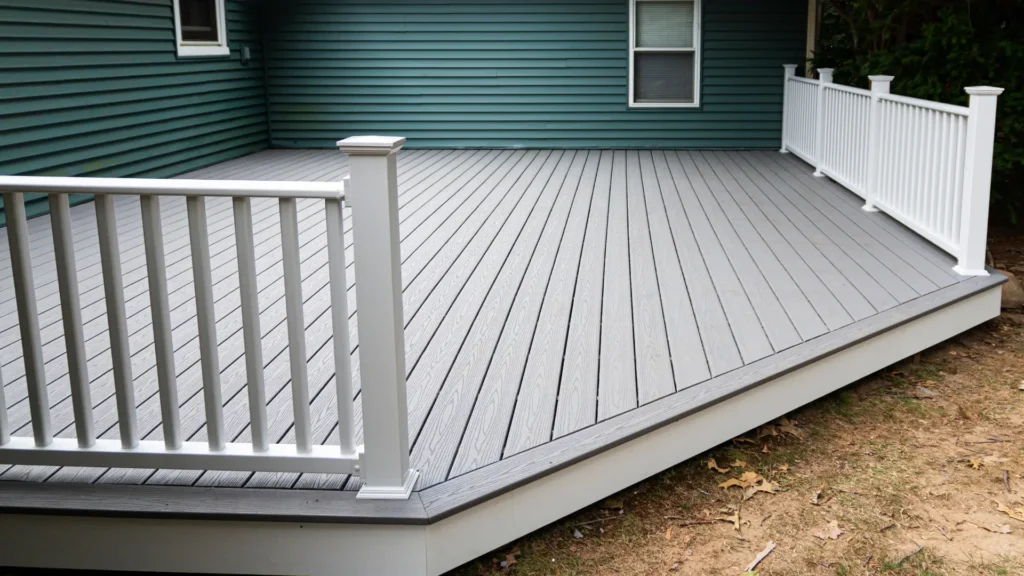Welcome to our guide on whether you need permission to make a deck in Christchurch. If you’re planning to add a deck to your home, you might be wondering if you need council approval or if your project is exempt. The rules can feel confusing, but this article will break them down in simple terms so you know exactly when you need consent, what situations are exempt, and how to apply if approval is required. By the end, you’ll feel confident about your next steps before picking up a hammer or calling a builder.
You may need council consent to build a deck in Christchurch if it is higher than 1.5 metres, located near a boundary, in a flood or heritage zone, or if it affects drainage. Low-level decks under 1.5 metres that don’t impact boundaries or special zones generally do not require permission. Always check Christchurch City Council’s guidelines before starting your project.
Table of Contents
Do You Need Permission To Build A Deck In Christchurch?
If you are planning to add a deck to your home in Christchurch, the first question you might ask is whether you need council approval. The short answer is yes, sometimes you do — but it depends on the size, height, and location of your deck. Christchurch City Council has specific rules to make sure new structures are safe, meet building standards, and don’t cause problems for neighbors.
The basic rule of thumb is straightforward: if your deck is higher than 1.5 metres above ground level, you will almost always need to apply for building consent. This requirement exists because taller decks can create safety risks, increase the chance of falls, and affect the privacy of surrounding properties. For example, a deck built close to a boundary at a higher elevation may overlook a neighbor’s backyard or windows, which is why the council has to review these projects.
On the other hand, smaller decks that sit closer to ground level often don’t require formal approval. Still, homeowners should never assume their project is exempt. Factors such as whether your property lies in a heritage zone, flood risk area, or special zoning district can also influence whether consent is necessary. The council considers these elements to protect both property owners and the wider community.
These guidelines are in place for more than just paperwork. They exist to ensure every new structure follows the New Zealand Building Code, respects the rights of neighbors, and reduces long-term risks. By checking the Christchurch City Council’s official building consent requirements before you start, you save yourself from potential fines, construction delays, or even having to rebuild your deck later.
Taking the time to understand these rules makes your project smoother and gives you peace of mind that your deck is safe, compliant, and ready to enjoy.
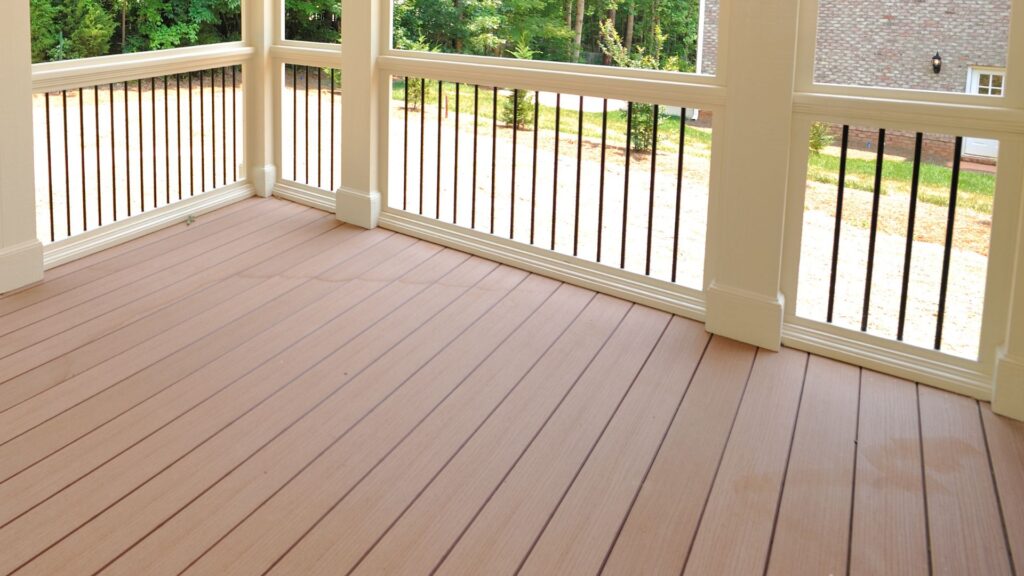
Decks That Don’t Require Permission
Not every deck in Christchurch needs council consent. If your project is small, safe, and doesn’t interfere with boundaries or special zoning rules, you may be able to build without going through the formal application process. Knowing these conditions can save you time and money while still keeping your project compliant.
When A Deck Is Exempt From Consent
In most cases, a deck does not require council approval if it meets the following conditions:
- The deck is no higher than 1.5 metres above ground level
- The deck is set back from boundaries and doesn’t overlook neighbors in a way that compromises privacy
- The deck is not located in a flood-prone or heritage zone
- The deck does not affect drainage, land stability, or structural integrity of your home
These rules are designed to ensure safety and protect both your property and your neighbors’ rights without adding unnecessary red tape for minor projects.
Practical Examples For Homeowners
- Small backyard deck: If you want to build a 30cm-high platform deck for outdoor seating in the middle of your lawn, you won’t need council consent.
- Low patio-style deck: A deck built just above ground level at the back of your house, used as an outdoor dining area, is generally exempt.
- Garden walkway deck: Timber decking used as a pathway or connection between outdoor areas, provided it’s under the height limit, usually doesn’t require approval.
These are common projects Christchurch homeowners often complete without needing to deal with formal applications. Still, it’s always wise to double-check with the Christchurch City Council before starting, especially if your property is near a boundary or in a special zoning area.
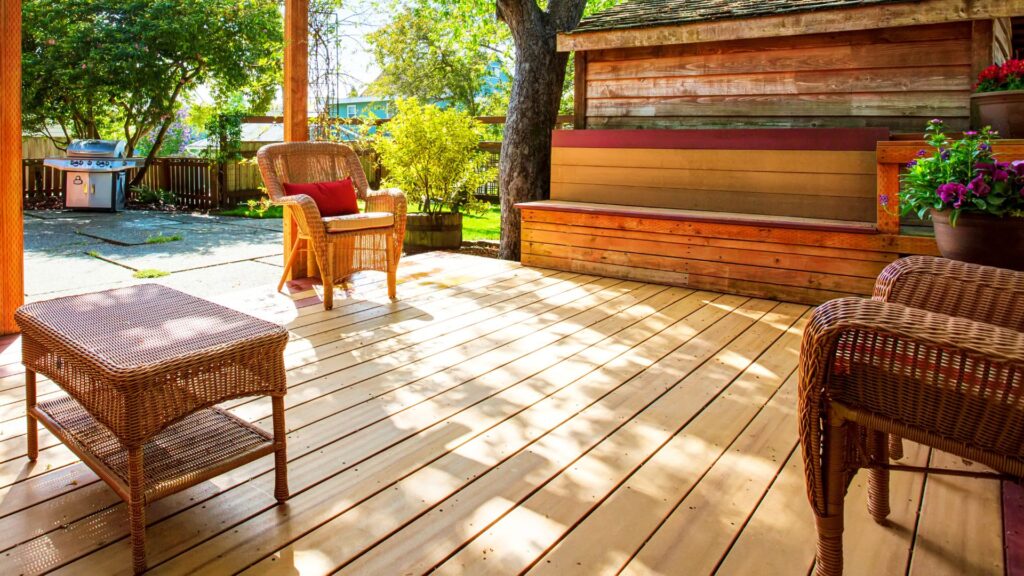
When You Do Need Permission
Not every deck project in Christchurch can be built without approval. Certain situations require official consent from the Christchurch City Council to ensure your project is safe, legal, and compliant with local rules. Below are the most common scenarios where you’ll need to secure either building consent, resource consent, or both.
Decks Above 1.5 Metres
If your deck will sit more than 1.5 metres above ground level, you’ll need building consent. The reason is straightforward: safety. Elevated decks present a greater risk of falls and require proper structural support, handrails, and guardrails. Council approval makes sure your design meets the New Zealand Building Code and protects anyone using the space.
Decks Near Property Boundaries
Decks built close to boundary lines often trigger council involvement. This is because raised platforms can affect a neighbor’s privacy, sunlight, and views. Even if your deck is under 1.5 metres, placing it too close to the boundary may require resource consent. Before you begin, always check your property’s boundary rules and talk to your neighbors.
Decks In Heritage Or Special Zoning Areas
Christchurch has areas with heritage protections and special zoning restrictions. If your home is located in one of these areas, any external construction, including a deck, may require resource consent. These rules preserve the character of the area and ensure that new builds respect local history and planning guidelines.
Decks That Alter Drainage Or Land Stability
Building a deck can sometimes change how water drains around your property or affect the land’s stability. If your deck design involves excavation, changes to soil levels, or is located in an area prone to flooding, you’ll likely need council approval. This ensures your project does not create hazards for you, your neighbors, or the environment.
Building Consent Vs. Resource Consent
It’s important to understand the difference between the two types of consent:
- Building Consent: Focuses on safety and compliance with the Building Code. It ensures your deck is structurally sound, safe to use, and built to last.
- Resource Consent: Relates to land use and environmental impact. It covers issues like boundaries, zoning rules, heritage restrictions, and how your deck affects the surrounding environment.
Some projects may need just one type of consent, while others might require both. Always confirm with the Christchurch City Council before starting your build.

How To Apply For Deck Building Consent In Christchurch
Applying for deck building consent in Christchurch may feel overwhelming at first, but breaking it into clear steps makes the process much easier. Council approval ensures your project meets New Zealand Building Code standards, protects safety, and avoids issues later when selling your home. Here’s a straightforward guide to help you through the process.
Step 1: Check The Christchurch City Council Website
Start by visiting the official Christchurch City Council website. Here, you’ll find updated guidelines on when building consent is required, detailed application requirements, and downloadable forms. The website also offers helpful resources like planning checklists, which give you a clear idea of what the council expects before you apply.
Step 2: Prepare Drawings And A Site Plan
Next, prepare detailed drawings of your proposed deck. These should include the deck’s height, materials, measurements, and exact location on your property. You’ll also need a site plan that shows how the deck relates to boundary lines, existing structures, and any special zones such as flood-prone or heritage areas. If you’re not confident with technical drawings, it’s smart to hire a designer, architect, or licensed building practitioner to do this for you.
Step 3: Submit Your Application
Once your plans are ready, you can submit your building consent application through the council’s online portal or in person. Along with the drawings, you’ll be asked to provide supporting documents that prove your deck complies with building standards. Double-check your submission before sending it in to avoid delays caused by missing paperwork.
Step 4: Pay The Required Fees
After submitting your application, you’ll need to pay the relevant council fees. Costs vary depending on the size and complexity of your deck, but for most residential projects, you can expect fees to start from a few hundred dollars. Larger or more complicated projects will cost more, especially if resource consent is also needed. The council usually provides a fee schedule online, so you can budget accordingly.
Step 5: Await Council Approval
Once the application and fees are processed, the Christchurch City Council will assess your deck plans. Standard approval times can take two to six weeks, depending on the council’s workload and the complexity of your project. If the council needs clarification or extra information, they’ll contact you, which may extend the timeframe. To speed things up, make sure your initial submission is complete and accurate.
Step 6: Work With A Licensed Building Practitioner
Although not legally required for every project, working with a licensed building practitioner is highly recommended. These professionals understand local regulations, can create accurate plans, and help ensure your project is built to code. Having a professional on board also reduces the risk of mistakes that could cause costly delays or rejections.
Applying for deck building consent in Christchurch is a step-by-step process that protects both your investment and your home’s safety. By preparing your documents carefully, budgeting for fees, and working with a licensed practitioner, you’ll make the approval process smoother and stress-free. Taking the time to do it right now will save you headaches later and give you confidence that your deck project is fully compliant.

Common Mistakes To Avoid
When planning to build a deck in Christchurch, it’s easy to get caught up in the excitement of designing your outdoor space and overlook the rules. Unfortunately, these oversights can lead to costly fines, legal issues, or frustrating project delays. Below are the most common mistakes homeowners make and how you can avoid them.
Skipping Consent And Facing Fines
One of the biggest mistakes is assuming you don’t need permission. If your deck requires building consent and you skip the process, you risk fines and enforcement action from the Christchurch City Council. In some cases, you may even be asked to tear down the deck entirely. Taking the time to confirm consent requirements before you start can save you significant time, money, and stress.
Building Too Close To The Boundary Without Approval
Another common error is placing your deck right up against a boundary line without checking the regulations. Boundaries exist to protect both you and your neighbors’ privacy and property rights. Building too close without consent can lead to disputes and council intervention. Always measure carefully and review setback rules before construction begins.
Submitting Poor-Quality Plans That Cause Delays
Detailed and accurate plans are a requirement when applying for building consent. Rushed or incomplete drawings often lead to delays, as the council may reject your application or request additional information. Working with a licensed builder or designer ensures your plans meet the required standards and speeds up the approval process.
Ignoring Flood Zones Or Heritage Restrictions
Christchurch has areas that are prone to flooding or fall within heritage zones. Ignoring these special conditions is a costly mistake. Decks in these locations often require extra permissions, design considerations, or materials that can withstand environmental challenges. Before you start, check the Christchurch City Council’s zoning maps to see if your property is affected.
Avoiding these common mistakes not only keeps your deck project on track but also ensures it meets Christchurch’s regulations. By doing the homework upfront, you’ll enjoy a smoother process and a safer, compliant outdoor space that adds real value to your home.
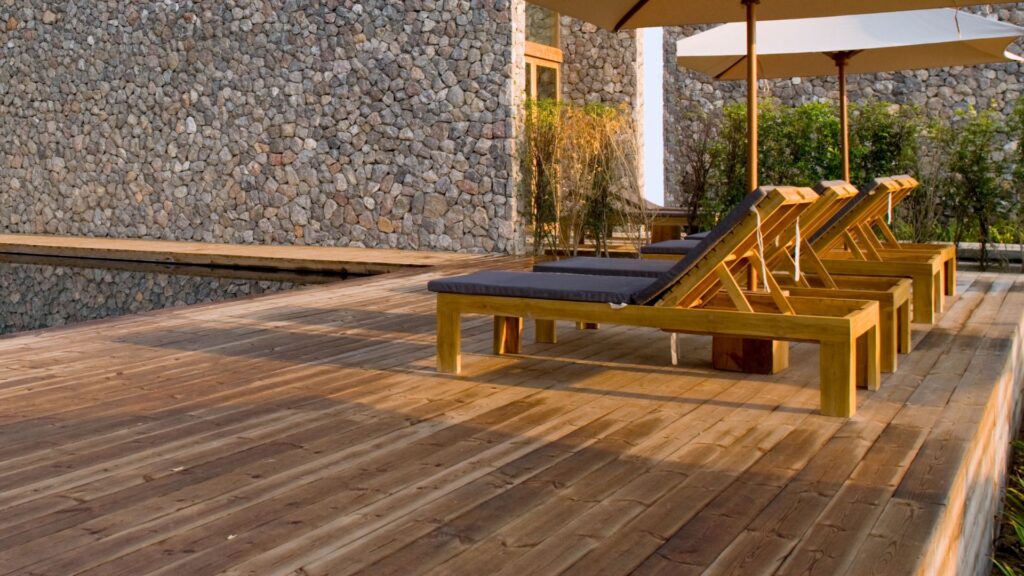
Tips For A Smooth Deck Project
Building a deck in Christchurch is exciting, but it comes with responsibilities. If you want your project to run smoothly and avoid unnecessary setbacks, there are a few smart steps you should take. These tips will help you save time, stay compliant with council regulations, and enjoy a deck that lasts for years.
Hire Professionals Who Know Local Regulations
Deck-building rules in Christchurch can feel complex, especially with building consent requirements. Hiring a licensed builder or contractor who understands local council regulations can save you from costly mistakes. These professionals know what documentation is required, how to prepare accurate drawings, and how to make sure your deck complies with both building and resource consent rules. While DIY may seem cheaper, professional support often pays off in faster approvals and fewer headaches.
Talk To Your Neighbors Early
A deck project can affect more than just your property. Neighbors might worry about privacy, shade, or noise during construction. By discussing your plans with them early, you build goodwill and reduce the chance of disputes. Sometimes, their feedback can even help you adjust your design before applying for consent, avoiding delays later on. A quick conversation can prevent issues that could otherwise complicate your project.
Use Quality, Weather-Resistant Materials
Christchurch experiences a range of weather conditions, from hot summers to wet winters. Using poor-quality materials may result in warping, rotting, or early replacement costs. Choose durable, weather-resistant timbers such as hardwood or treated pine, and consider composite decking if you want a low-maintenance option. Investing in quality upfront ensures your deck remains safe, attractive, and functional for years to come.
Factor In Christchurch’s Climate
Christchurch is unique because of its climate and seismic activity. Beyond general weather patterns, frost, heavy rainfall, and earthquakes all play a role in how a deck should be designed and built. Proper drainage, frost-resistant foundations, and structural stability are critical. A professional builder can help account for these factors, ensuring your deck not only looks great but is also safe and resilient.
Keep All Paperwork And Consents On File
Once your deck is complete, don’t lose track of the paperwork. Building consents, inspection reports, and design documents are important not only for compliance but also for the future resale of your home. Buyers and property inspectors often ask for proof of council approval, and having everything on file makes the process much easier. Organized records also protect you in case disputes arise later.
Following these tips will help you avoid delays, unexpected costs, and compliance issues when building a deck in Christchurch. By working with professionals, choosing durable materials, and staying organized, you can enjoy a safe and beautiful deck that adds real value to your home.
Ready to build your dream deck the right way? Explore our website for expert tips, council consent guidance, and trusted local builder connections to make your project smooth and stress-free.

FAQs: About Do You Need Permission To Make A Deck In Christchurch?
Do I need council consent to build a deck in Christchurch?
Yes, if your deck is over 1.5 metres high, close to boundaries, or in a special zone like flood or heritage areas, you’ll need consent.
What size deck can I build without consent in Christchurch?
You can usually build a deck under 1.5 metres high without council approval, provided it doesn’t affect boundaries or protected zones.
What happens if I build a deck without consent in Christchurch?
If you build without required approval, you could face fines, be asked to remove or modify the deck, or encounter problems when selling your home.
How do I apply for deck building consent in Christchurch?
You need to submit plans, drawings, and an application through the Christchurch City Council website, along with paying the required fees.
How much does building consent cost for a deck in Christchurch?
Costs vary based on project size and complexity but typically include application fees, inspection fees, and possible design costs.
How long does it take to get deck consent approval in Christchurch?
Approval timeframes depend on council workload, but it usually takes a few weeks. Complex projects may take longer.
Do I need resource consent as well as building consent?
Resource consent is required if your deck affects land use, boundaries, or falls under zoning restrictions, in addition to normal building consent.
Can I apply online for deck building consent in Christchurch?
Yes, Christchurch City Council allows online applications for building consent through their official website.
Do steps or small platforms need council approval in Christchurch?
If steps or platforms are under 1.5 metres and don’t affect zoning or boundaries, they typically don’t require consent.
Is it worth hiring a builder for my Christchurch deck project?
Yes, professional builders understand local rules, can prepare accurate plans, and help ensure your project meets all council requirements.
Conclusion
Building your dream deck in Christchurch is absolutely possible when you take the time to understand and follow the city’s rules. By checking whether consent is required, preparing the right plans, and working with trusted professionals, you can avoid costly mistakes while ensuring your deck is safe, durable, and adds real value to your property. Responsible building not only protects you from fines or legal issues but also boosts the long-term appeal and resale value of your home. Before you start, make it a priority to review the Christchurch City Council’s guidelines or speak with a local builder who knows the consent process inside and out, so you can move forward with confidence and peace of mind.

